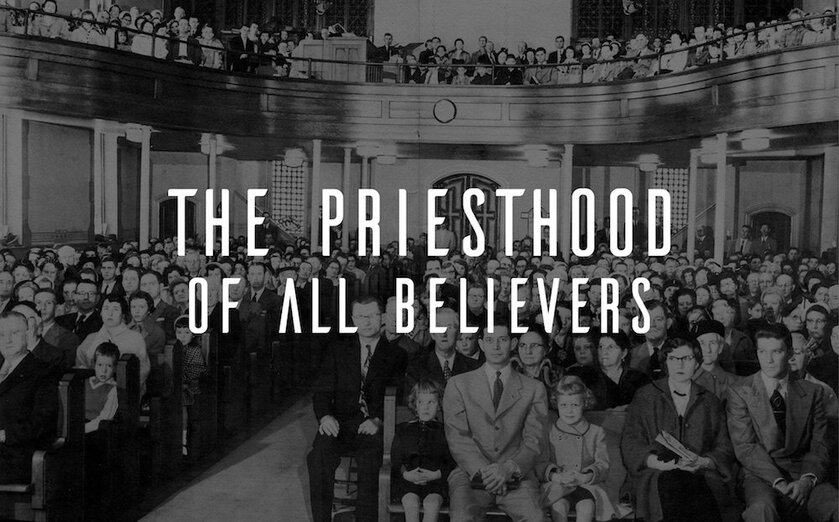Does Your Faith Stand the Test of Scripture?
Matthew 23:37-39
"Jerusalem, Jerusalem, who kills the prophets and stones those who are sent to her. How often I wanted to gather your children together, as a hen gathers her chicks under her wings, but you were not willing! See, your house is left to you desolate. For I tell you, you will not see me again until you say, ‘Blessed is he who comes in the name of the Lord’!"
Everything written down in the Old Testament that concerns the relationship between God and his human creation is based upon the idea of man loving God with all his heart, mind, spirit and strength. And likewise, everything written down in the OT that concerns mankind and his relationship with mankind is reflective of his successes and/or failures to love one another as God has loved them. These two relationships and the inequities that abound are what make up the whole of the biblical story. Thats pretty much what the Bible is all about.
People talk a lot about the Bible and what it's worth, what value it has in the grand scheme of things. Many believe it is Holy. Some believe it is the Word of God, and some believe it is not. Often times, both of these camps claim to love God. Some prophets and preachers, pastors and priests, come in the name of The Lord; and some come in their own name or by virtue of some other surrogate. All these people tend to claim love for God. And not one of them has known God absent the Scriptures.
If you've ever had a conversation online about politics, or ethics, maybe philosophical questions and biblical arguments, you quickly learn that there are always contrarians and people who will insist that the Word of God doesn't say what it's saying to you. And there's always that person who insists that the Word of God never claims to be "The Word of God". And he probably also insists Jesus never claimed to be God. Just lots and lots of insistent questions and very little inspiration.
Think about the Pharisees and all their encounters with Jesus. In every instance there are questions, tests of faith and substance. But do you recall any inspiration coming from the Pharisees? Can you share a positive experience that they shared? Did they ever offer grace, mercy, justice, hope, forgiveness? Can you think about even one instance in which a Pharisee was of any good spiritual significance? They never even speak about the Scriptures other than to comment on Jesus' great understanding and interpretations of those writings. They instead focus primarily upon their own traditions and extrabiblical Rabbinic teachings. First century Jerusalem is a perfect example of a secularized priesthood that does not appreciate the Scriptures or the divine power that backs those words up. The Holy Spirit is not in them.
It's a world of conflict these days. And social media amplifies that conflict. And into that context Jesus comes in the name of the Lord. He comes by means of The Word of God. We call it the Bible.
Convincing a skeptic about the divine origins of Scripture is no easy task. Since "the natural person does not accept the things of the Spirit of God" (1 Corinthians 2:14). And I'm laughing as I type this because the skeptic would hate that I just used the Bible to proof the Bible. Our efforts to prove the divine nature of The Bible may not always convince the skeptics, but that does not mean our arguments are invalid. God's Spirit has provided ways that we can know these Bible books are from Him. Just as there is natural revelation all around us that speaks about the divine power of God, there is special revelation (Scripture).
It's not just that the Scriptures say things, but the Scriptures also do things. If you've spent any time in the Word and in the ministry of the Word, you will have many stories to share about the special divine revelation that comes from God's word. You'll have seen it at work in the lives of the people that it is affecting.
It convicts (Hebrews 4:12–13).
It encourages (Psalm 119:105).
It comforts (Psalm 119:50).
And it brings wisdom (Psalm 119:98).
The Bible brings understanding in regard to the biggest questions of our lives (Psalm 119:144).
And it is divinely incredible to see how many different authors; writing in different ages, in different locations, and from different cultures, can weave together and affirm one unified and coherent story of the redemption of all creation through Jesus Christ.
Christians know the Scriptures are God's Word because in them we hear the voice of our Lord.
As Jesus declared, "My sheep hear my voice, and I know them, and they follow me" (John 10:27).
Maybe this is why Jesus reaches into the Biblical story to ask the Pharisees about himself...
Matthew 22:42-46
“What do you think about the Messiah? Whose son, is he?”
They replied, “He is the son of David.”
Jesus responded, “Then why does David, speaking under the inspiration of the Spirit, call the Messiah ‘my Lord’?
For David said, ‘The Lord said to my Lord, Sit in the place of honor at my right hand until I humble your enemies beneath your feet.’
Since David called the Messiah ‘my Lord,’ how can the Messiah be his son?”
No one could answer him. And after that, no one dared to ask him any more questions. (End)
I read this interaction between Jesus and the Pharisees, and I have to laugh. I can just imagine this being an Xpost thread. And the comments below it. I'm positive that there'd be plenty who would dare to ask him more questions.
Contrarians aside, the Bible goes far beyond all other human information resources as far as truth, substance and virtue are concerned. The scripture has its authority in God, in the Holy Spirit, and in history. In addition to the internal divine quality of the scriptures, historical origins of the canonical books stand as evidence of their unique character. They come from God's authenticated messengers, prophets and disciples who were authorized to speak for Him. God is the author; the Holy Spirit is without error and He has passed along these messages to the faithful who have been sent (Apostles) to spread the Word of God to all the people in every nation throughout the world.
The Bible isn't just a collection of words, it's a collective of the words of human beings who were called to be God's mouthpieces (2 Peter 1:21).
"For prophecy never had its origin in the human will, but prophets, though human, spoke from God as they were carried along by the Holy Spirit."
Time after time, the books of the Bible have proved themselves to be historically reliable and the prophets words they share have been proven to be incredibly accurate. The words of God found in the Bible has been subjected to unending scrutiny and the most rigorous examinations for thousands of years. And for generations upon generations, the people have recognized these books are indeed from God. But ultimately, and probably most importantly, at least for me and my faith, Jesus Himself uses the Scripture, and He unequivocally affirms its divine power: "Scripture cannot be broken" (John 10:35).
John 10:34-38
Jesus replied, "It is written in your own Scriptures that God said to certain leaders of the people, ‘I say, you are gods!’ And you know that the Scriptures cannot be altered. So if those people who received God’s message were called ‘gods,’ why do you call it blasphemy when I say, ‘I am the Son of God’? After all, the Father set me apart and sent me into the world. Don’t believe me unless I carry out my Father’s work. But if I do his work, believe in the evidence of the miraculous works I have done, even if you don’t believe me. Then you will know and understand that the Father is in me, and I am in the Father."
Jesus didn't shy away from proving scripture by scripture, and neither should you. And if we aren't shy about believing the Bible, we won't be shy about believing Jesus. And therefore, it is true that if we believe in Jesus, we will also believe the Bible. It kind of works that way. Your faith proves the Bible, and the Bible proves your faith. And if it doesn't, your faith doesn't stand the test of scripture.
As Jesus declared, "My sheep hear my voice, and I know them, and they follow me" (John 10:27).
Does your faith stand the test of scripture?
#WordofGod




















